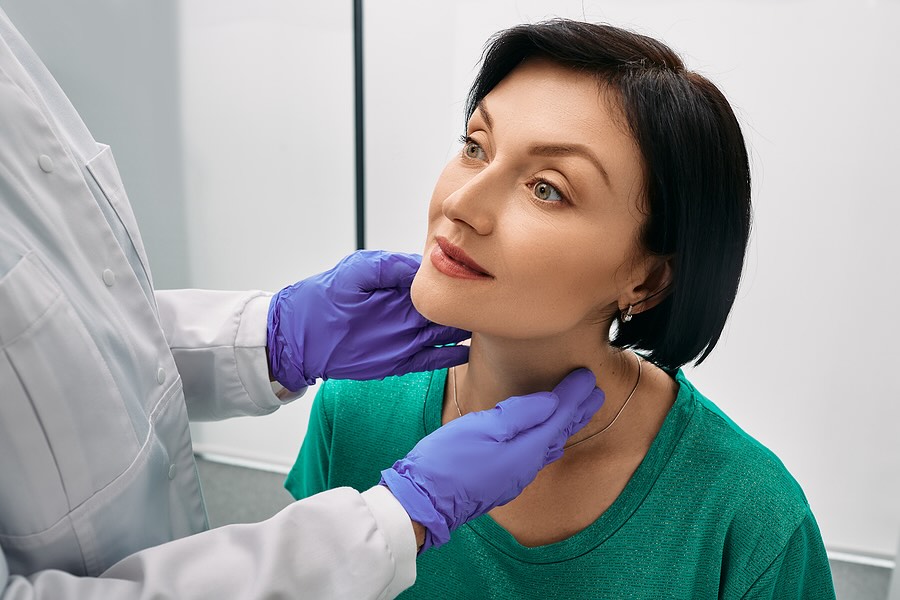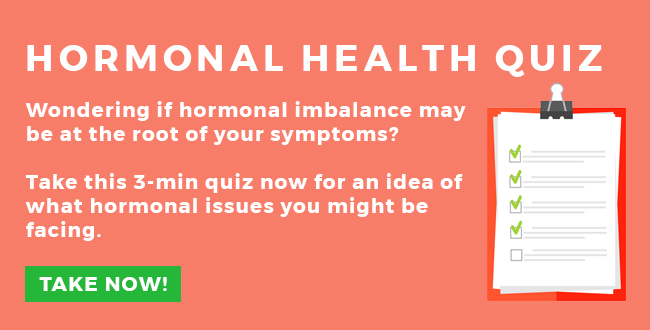- Conventional doctors often miss the mark when it comes to hormonal imbalances.
- Hormones are unique to every woman’s body – that’s why a generalized approach simply doesn’t work!
- Menopause is a natural transition, not an illness to “cure”.
- A specialist better understands how all hormones are interconnected, so they can treat the root causes, not the symptoms.
- My natural program can help you experience real, lasting relief!
“I told my primary care all the things I’ve told you, and they simply wrote me a prescription. I don’t want to take a pill for the rest of my life, and it’s not working anyway. Why can’t I get any answers?
Sherri’s question was so familiar. I’ve heard it countless times when women come to see me after her conventional physician told her the symptoms she was experiencing before, during or after menopause were typical, and there wasn’t much else they could do about it.
These women want answers – not someone who will say they just have to live with it! They want someone who can actually help them feel better – and they deserve to find the help they need!
Hormonal imbalance is at the root of many confusing and sometimes frightening symptoms. The last thing you need when you are in this position is someone who makes you feel worse because they have no solutions to offer. What you really need is someone who will help you sort through what’s really going on in your body, and to help you find solutions. And there are solutions! Unfortunately, conventional health care practitioners often default to the same old thing, whether it works or not. They may not even acknowledge that there’s another way!
Why don’t conventional solutions help with hormonal imbalances?
Conventional medicine is very effective for some conditions, but when it comes to hormones, doctors seem to miss the mark. Hormonal balance is complicated, unique to each individual woman. That’s why the generalized approach so often favored by conventional medicine simply doesn’t work.
It’s not enough to simply treat individual symptoms. With hormonal imbalance, you have to consider the whole picture. Because all the systems in your body are connected, you can’t separate each symptom as it’s own issue; you have to take a whole-body approach to hormonal health. Hormones are so interrelated that when one is out of balance, it can lead to another problem, and another, and another – including irritability, weight gain, low libido, and some much more serious health problems.
Throughout my more than three decades of practice, I’ve advocated for a functional approach that is vastly different from what you experience when dealing with the mainstream health care system. Sometimes I have to wonder if conventional practitioners have any idea at all what a real woman needs. Not sure what I’m talking about? Here are a couple of common scenarios:
- Conventional doctors typically have little training in endocrinology unless it’s their chosen specialty. Even if they received some initial training, new information emerges regularly, and it’s unlikely that they are up to date with the latest findings on hormonal imbalances.
- Many practitioners still think menopause is something that needs to be treated, managed or fixed. But menopause is not a disease;it’s a natural transition. And it’s far more complex than “fixing” one issue. But if your doctor views menopause as an illness, it can be tough to effectively talk about your concerns.
- Financial limitations and managed care have caused some practices to fall back on quick visits and simple lab tests that don’t measure nuances to a situation. But a holistic approach is essential when looking at complex hormone issues. And there’s a lot of misinformation floating around out there – like that because women’s hormones are unpredictable in their fluctuations, it’s impossible to diagnose or understand hormonal imbalances.
What a Female Hormone Specialist Can Do For You
Conventional primary care doctors just may not be a good fit for guiding you through your unique situation. They may lack the time, interest or specific knowledge necessary to unearth the best solutions for you. That’s why specialists can be so important!
Many practitioners focus solely on estrogen levels when looking at menopause symptoms. But changes in both progesterone and testosterone can play a role, and when there are atypical ratios between all of your sex hormones, symptoms also result. Not only that, but there are connections between insulin levels, thyroid function, and adrenal health and sex hormones. Clearly, it’s not as simple as examining estrogen levels.
Often, imbalances in your sex hormones – estrogen, progesterone and testosterone – are connected to dysfunction in your adrenal glands. If your adrenal glands are responding to constant stress by hoarding cholesterol to make cortisol, they will lag behind in the production of sex hormones. Though the ovaries produce a significant portion of these sex hormones, when you enter perimenopause and menopause it’s time for the adrenals to take on a larger supporting role. In menopause, your adrenals are responsible for making more than 30 percent of the sex hormones needed to keep you balanced.
When the call for cortisol is too high, as I said before, the adrenals abandon production of sex hormones to focus on the cortisol. Progesterone is the first to drop, and an ongoing progesterone deficiency can cause a whole host of symptoms, from hot flashes and irritability to sleep difficulties and fuzzy thinking. Not only that but too much cortisol can lead to thyroid issues, blood sugar problems, fluid retention and digestion difficulties.
That’s why the standard solutions – hormone replacement therapy (HRT) or antidepressants – often don’t do what you hope – and just might make you feel worse! You have to treat the real problems to find relief.
So many women like Sherri tell me they told their health care provider about their hot flashes and left with a prescription for antidepressants. But hot flashes are not a symptom of depression! And when you treat depression that isn’t there, those prescriptions can really wreak havoc on your biochemistry.
A natural approach to hormonal imbalance that makes sense
In functional medicine, when I treat women for symptoms related to perimenopause and menopause, I take the most natural route possible. I start by looking at nutrition and sleep patterns and making some lifestyle changes. We talk about stress, exercise, self-care, and eating the healthiest diet possible. I also look closely at what is going on with the adrenals and what might be happening with hormone levels – and that includes comprehensive lab tests.
Conventional doctors often tell women that their hormones fluctuate constantly, so tests won’t tell them anything. I disagree! I think it’s essential to look at hormone levels – the natural dips and rises will look really different than a drastic deficiency or a downward trend over time.
I believe that you are the expert on your own body, and it’s up to me to listen to and understand your concerns so I get the whole picture. Then, I can help you develop the best plan to bring your body into balance naturally. It’s a partnership designed to help you find relief – and possibly better health than you’ve ever experienced!
If your practitioner isn’t giving you what you need, you don’t have to stick with them! Don’t be afraid to seek out someone who shares your desire to find holistic solutions to hormonal issues. After all, it’s your health on the line. Shouldn’t you be able to trust in the relationship, knowing that together you can find solutions that are right for your unique situation? I think so!
Try my natural program to put you on the right path
I know women don’t always have the time for extensive research into the best natural solutions, so I’ve done it for you! If you are looking for relief from hot flashes, mood swings, poor sleep and brain fog, my Menopause Program can help. It’s specially designed to balance your hormones and improve adrenal function to alleviate all the typical symptoms of menopause.
My program is natural, and is a non-phytoestrogen formula, containing no soy. My Menopause Program works synergistically with your body to restore hormonal balance. This program includes my Multi Essentials, with over 100 percent of recommended daily value of 17 different nutrients; Menopause Support blend which contains herbs known for relieving symptoms of menopause, including black cohosh, chaste tree extract, chrysin, and DIM; and the Adrenal Support Formula, with adaptogenic herbs that are well know for reviving the adrenal glands, such as eleuthero, American ginseng and rhodiola.
I’ve been helping women find relief and balance for more than 30 years. I believe women deserve to be heard, and I believe health care professionals need to listen. I can help you find your way to the woman you know you were meant to be!









